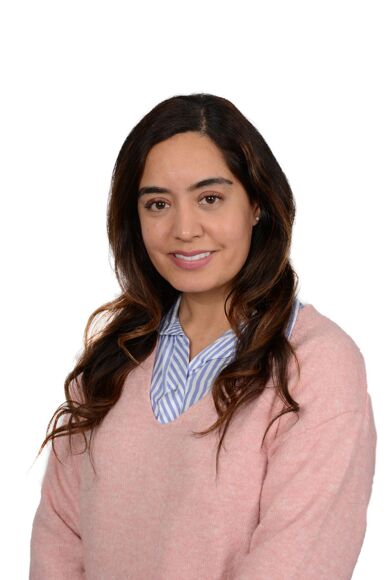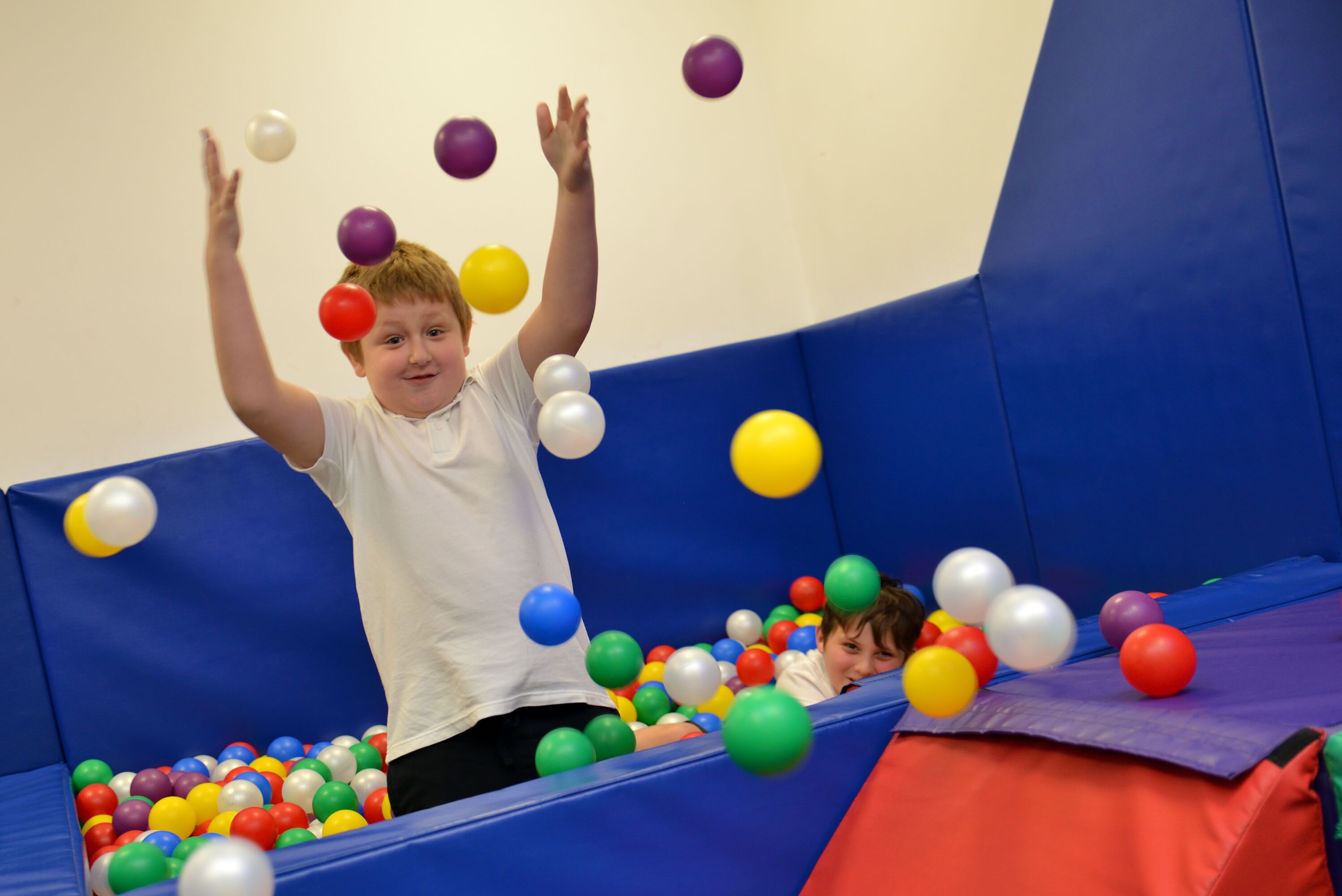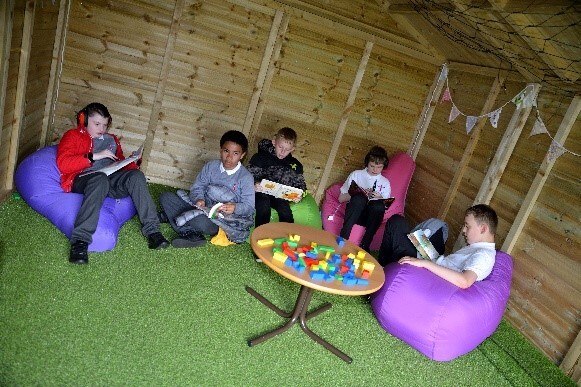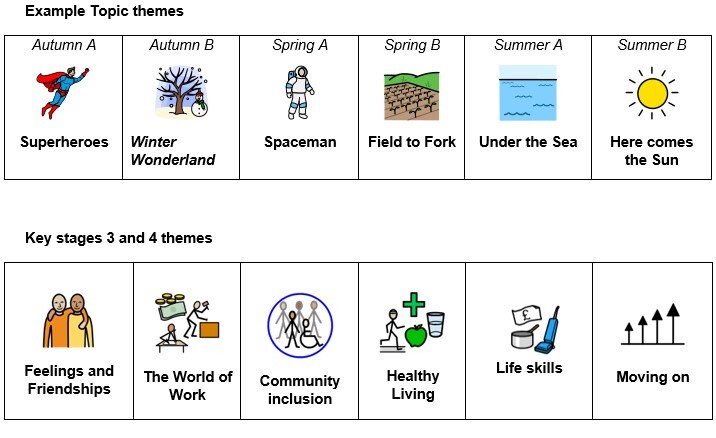- Home
- Curriculum
- Curriculum Overview
- Explore Pathway
Explore Pathway
Pupils following the Explore Pathway are based at the Redhouse site of Harry Watts Academy, the pathway lead is Navpreet Kang.

In line with the other pathways in HWA our curriculum is based on individual pupil EHCP targets and we have a commitment to personalise the curriculum to the unique qualities and needs of each pupil, and a teaching and learning approach that is flexible and informed by specialist knowledge of the strengths and difficulties associated with Autistic Spectrum Condition (ASC) in general. Central to this is the health and well-being of our pupil community; we believe that it is of paramount importance to the physical, mental and emotional health of our pupils that individuals feel they are making progress and attaining at an appropriate level.

For pupils on the Explore Pathway, we want to create inquisitive and engaged learners, through a range of motivating and exciting learning and life experiences. The Explore Pathway is based upon a semi-formal approach, which has been designed to allow the acquisition of knowledge and understanding needed to progress over time. A coherent learning sequence has been developed to ensure that knowledge is built cumulatively from the beginning to the end of the pupil’s learning journey. This deliberately allows for over learning, repetition and consolidation, all vital in the development of our pupils.

Our Explore pathway is:
- for all learners (primary and secondary) who are working on a semi-formal curriculum (above pre key stage 1 standards) who benefit from a combination of sensory activities and early formal teaching approaches to develop their communication and social skills.
- planned by class teachers with support from subject specialists.
- sequenced according to a scheme of storybooks, linked to themes, to expose students to a rich variety of stimuli and offer ‘hooks’ for academic learning. (see topic maps).
- delivered through a blend of targeted subject-specific learning (including maths and English), engaging and motivating experiences, and specialist interventions, adapted and enriched through the story and topic themes.
- assessed using individual EHCP targets and a bespoke combination of frameworks chosen to best reflect the progress of each learner including Bsquared progression steps, Harry Watts communication tracker, phonics assessments and SCERTS.
All pupils will be assessed annually to ensure they have the opportunity to progress within their pathway. From year 3 pupils may progress to the Discover pathway if appropriate.
- Plan to be accredited in Key stage 4 through AQA English and Maths Entry level and functional skills. Bronze and Silver Duke of Edinburgh Awards.
Topic
Topics may last a half-term or term. Primary topics provide a wide range of exciting stimuli to develop all 4 EHCP areas and inspire a love of learning. As pupils progress throughout the school, topics become more focused on life skills and preparation for adulthood themes while still encouraging plenty of fun and creativity. See our example timetables and half termly topic maps.

All activities in our timetable are designed to help the children in the Explore pathway to meet their individual EHCP targets.
The activities focus on the following key areas, with many activities developing a number of these areas simultaneously:
- Cognition and Learning
- Social, Emotional & Mental Health
- Sensory, Physical Development & Life Skills
- Communication & Interaction
As well as this, in order to ensure we provide our learners with a well-rounded curriculum and to create exciting, engaging learning opportunities, creativity and an awareness of our world feeds through many of the activities planned each week.
Below is a rationale, explaining some of the sessions incorporated into the explore timetable and why they are being used in the teaching and learning in the explore pathway.
Circle Time - allows us to practise our social skills and group communication. It follows the same format each day to allow children to begin to anticipate familiar routines in the school day. We sing a ‘hello’ song to each child, we have a movement break to work on gross motor skills. It is also a chance for the class to explore and understand their emotions by choosing how they feel and communicating why this is.
Snack, Lunch & Personal Care - communication, social interaction and life skills are the key focus during these times. Children are encouraged to request their preferred snack item and sit together to share meal times. During personal care, children are supported to become as independent as possible with dressing, using the toilet and washing hands.
Outdoor Learning - children’s physical wellbeing is developed as they are encouraged to be active and adventurous in their play. Children are able to self-regulate their emotions and sensory needs through the use of the outdoor sensory circuit and the equipment in the adventure playground. As well as this there are many opportunities to work on communication and social skills as the children share these activities with friends and supporting adults.
Attention Building - Children follow the Attention Autism programme to stage 4, in order to build on group attention, turn taking, communication and social interaction.
Relaxation, Storytime and Music - an opportunity for calming activities before lunch or the end of the day, focussed on a sensory story, music, yoga and reflecting on the achievements of each child that day.
Sensory Stories - each half term, we will focus on a different story. Sensory story allows us to bring these books to life and enhance the children’s understanding of them by adding sensory elements to each section of the story. By repeating these stories each week, children can fully engage with them and can begin to anticipate what will come next, or remember the words to the repeated phrases.
Creative Arts - these sessions cover music, dance, role play/drama, collage, painting and drawing. The activities encourage communication and vocabulary development, group attention, emotional regulation and body awareness. They are also used to meet the children’s cognition and learning targets through, for example, number songs and through linking the activity to the story of the term.
PE, yoga, swimming - these activities all work on the children’s physical and sensory targets on their EHCP whilst, as always, providing many opportunities for communication, social skills and emotional regulation.
Tacpac - a sensory communication intervention which combines the senses of touch, sound and sight. Children listen to a number of specially composed pieces of music, as they see and feel different textured materials on their bodies, delivered rhythmically in time to the music. This helps with the children’s sensory alignment and body awareness.
Specialist Rooms - the sensory rooms and soft play room allow opportunities for self regulation of emotions, sensory integration, physical development and communication. We often use time in these rooms to communicate by choosing particular pieces of equipment, play group games, practise intensive interaction and sing songs or tell stories.
Social Games - an opportunity for us to work on our social skills and interactions with peers and adults. The children communicate with one another to make choices about games, take turns, share toys, express likes/dislikes and enjoy playing socially in a group. These games are supported by adults who will also provide games that will help to work on the children’s cognition and learning targets (e.g. number puzzles, hide and seek using positional language, rhyming pairs)
Forest School - outdoor learning following the children’s lead and interest, which provides many opportunities to work on individual EHCP targets. Physical wellbeing is strengthened through climbing, swinging, balancing and jumping. The sessions encourage problem solving, risk taking, teamwork and imaginative play. Children practise life skills such as building shelters, following directions) and developing their independence. Cognition and learning is developed by matching the theme of the session to the termly story, and an awareness of the environment and our world comes through engaging positively with nature. This all gives rise to numerous opportunities for communication and interaction with adults and peers.
Lego Therapy - social interaction, turn-taking skills, sharing, collaborative problem-solving and motor skills are all enhanced during this small group intervention.
